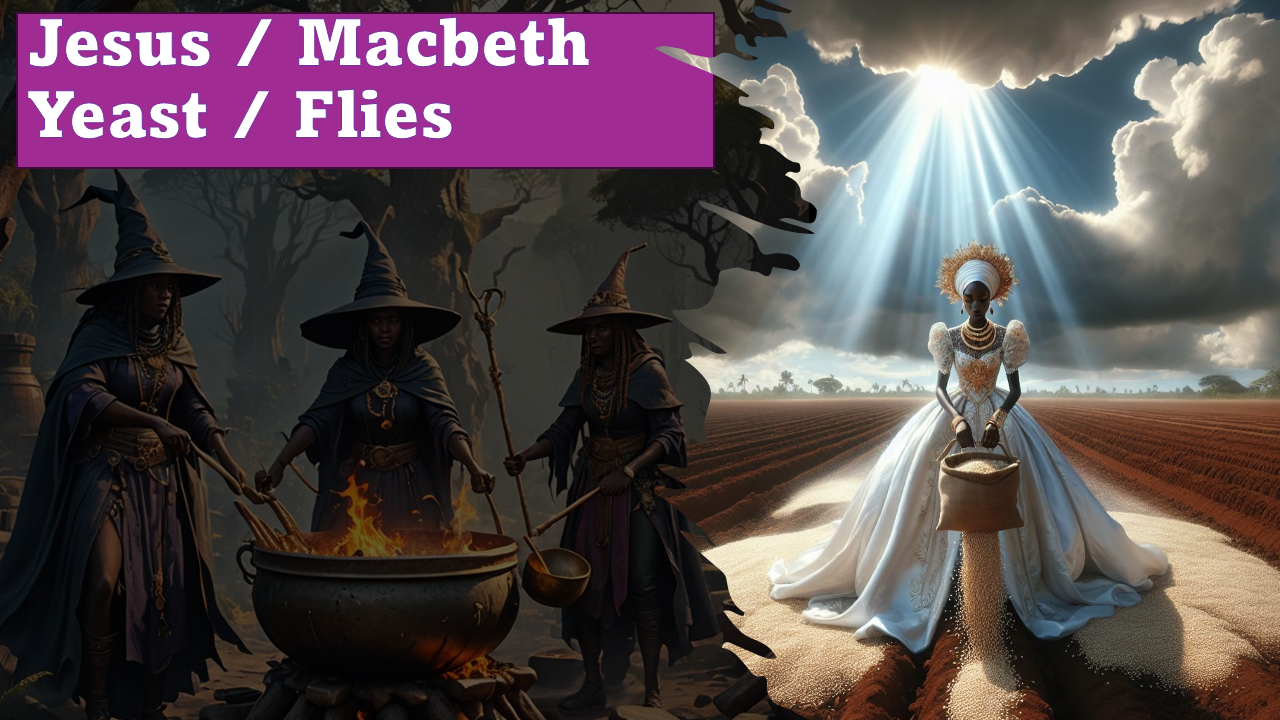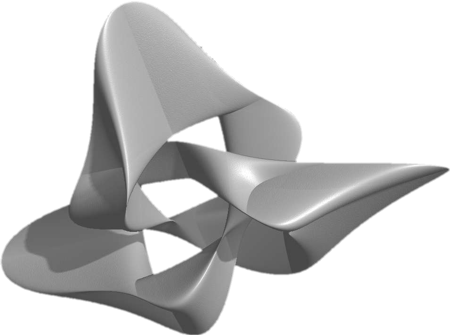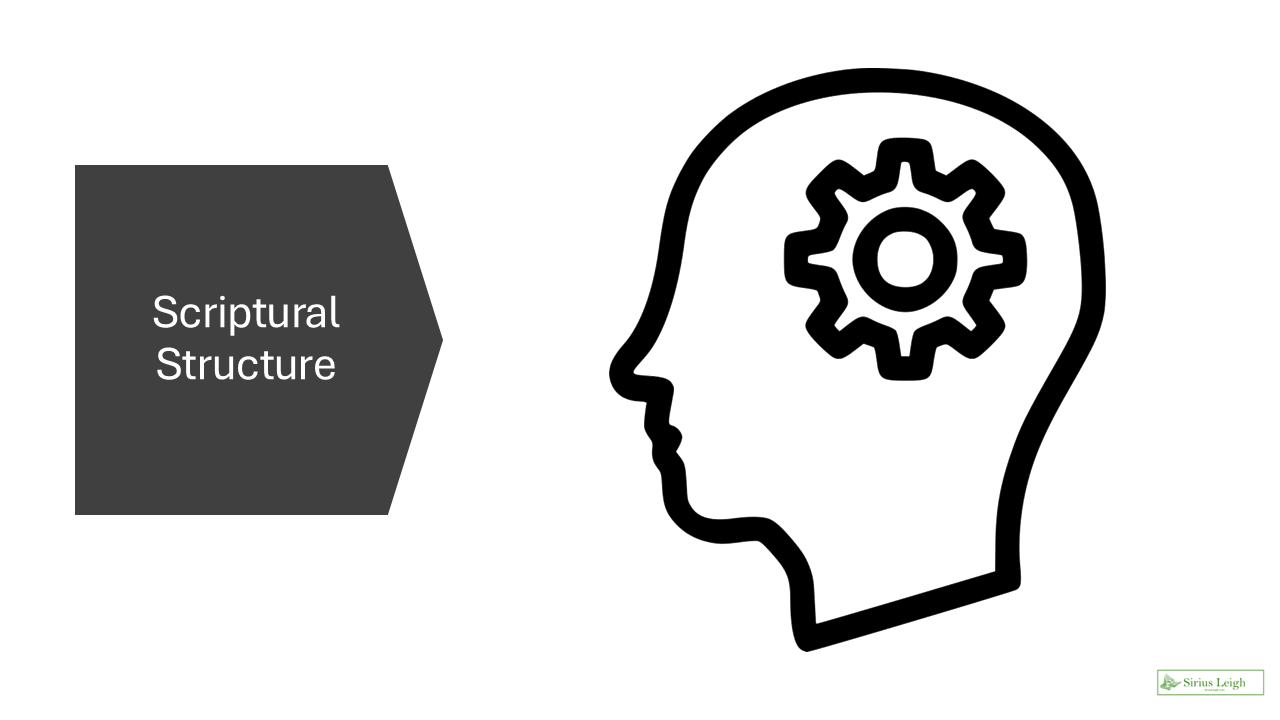
Discernment Skills: Jesus or Macbeth?
The Spirit of Truth does not present the same to everyone and can free or bind. We can discover a lot about ourselves when presented with truthful insight.
Will you play the part of Jesus or Macbeth?
In Shakespeare’s The Tragedy of Macbeth, the boundary between fate and choice is blurred in the mist. As Macbeth and Banquo tread a barren heath, they meet the Weird Sisters—murmuring figures who speak riddles of destiny.
Yet the witches do not bind Macbeth.
They merely offer a whisper; it is Macbeth’s own soul that listens with trembling ears.
Given a glimpse of possibility, he succumbs to fear, to obsession, to violence—and so seals his doom.
Now let us turn to a different figure:
One who also foresaw his own death.
Jesus, too, carried knowledge of the inevitable. Yet where Macbeth clutched at power, Jesus released it. Where Macbeth raged against fate, Jesus walked into it—hands open, heart unafraid.
One was destroyed by the vision he received.
The other fulfilled it.
Which do you resemble more deeply?
How do you discern direction from control?
When I encounter knowledge—especially the strange, the difficult, the unsettling—I ask myself a question:
Is this new truth like yeast in the dough, rising invisibly, nourishing and transforming from within?
Or is it like a fly in the stew—something foreign, corruptive, demanding to be cast away?
True yeast brings expansion, warmth, and vitality.
A fly breeds rot and ruin.
The test is subtle, but essential.
Not every soul meets revelation with readiness.
There are two kinds of seekers:
The first welcomes the new, weaving it carefully into the tapestry of their understanding.
A craving to weave more of the connective thread.
The second recoils, seeking the contamination, perceiving threat instead of wonder.
There is no connective thread, but a conspiracy chain.
In the real world, this concept of yeast and flies is true and everyone has the opportunity to play both roles. To understand this you must pay attention to your gut reactions.
The yeast in bread feeling is to absorb valuable knowledge and allow it to expand and reshape thinking.
The fly in stew feeling is an intrusion that must be resisted, corrected, or discarded.
I offer an example.
I compare Jesus and Macbeth not only because both approached their deaths with foreknowledge, but because of the lesser-known thread binding Shakespeare to King James—the monarch behind the King James Bible.
Shakespeare, as a Groom of the Chamber and a favored playwright of the King’s Men, lived close to the beating heart of royal power and ecclesiastical ambition.
Furthermore, the Weird Sisters were inspired by real women—accused witches in Scotland—whose tortured confessions of conjuring storms fed King James’s fear and fascination. So much that he included them in his own treatise on witchcraft, Daemonologie (1591)
Was there a connective thread of influence between the Bible that shaped the English tongue and the playwright who illuminated the English soul? Perhaps.
Was it a chain of conspiracy against God? Perhaps.
Or simply the inevitable cross-pollination of two men moving within the same charged and sacred currents of history? Also possible.
And so the question for you arises:
Is this knowledge like yeast—stirring something richer and deeper within you? A desire to know more.
Or is it a fly—an intrusion you must pluck out, lest your faith be spoiled? Proof of a fallacy.
When you are offered a thread—however tangled—do you weave it into your garment of understanding?
Or do you tear it away, fearing that the whole cloth might unravel?
There are mysteries in history, in scripture, in the human heart.
Some are invitations to expansion.
Others are warnings to retreat.
Which voices do you heed?
How do you discern?
Have you truly considered it?
Or perhaps you have -ismsWithin the soil of the human experience, isms take root — some becoming sturdy foundations that nourish our growth, and others creeping More that prevented your acceptance of this analogy ab initio?
In As You Like It, Shakespeare said,
“All the world’s a stage, and all the men and women merely players.”
Was the KJV Bible the “Script” created for this stage?
What does your gut tell you?
Is this a conspiracy chain or a connective thread?
Perhaps it doesn’t matter at all.
Click to read about Shakespeare’s Role in the King’s Men and the Royal CourtWilliam Shakespeare was indeed a member of the King’s Men, the acting company that received royal patronage from King James More
Even though I draw heavily from my personal story to illuminate Biblical truth, I want to be…
And What Does That Have to Do with Batman? Let’s clear something up:When I say fractal, I…


